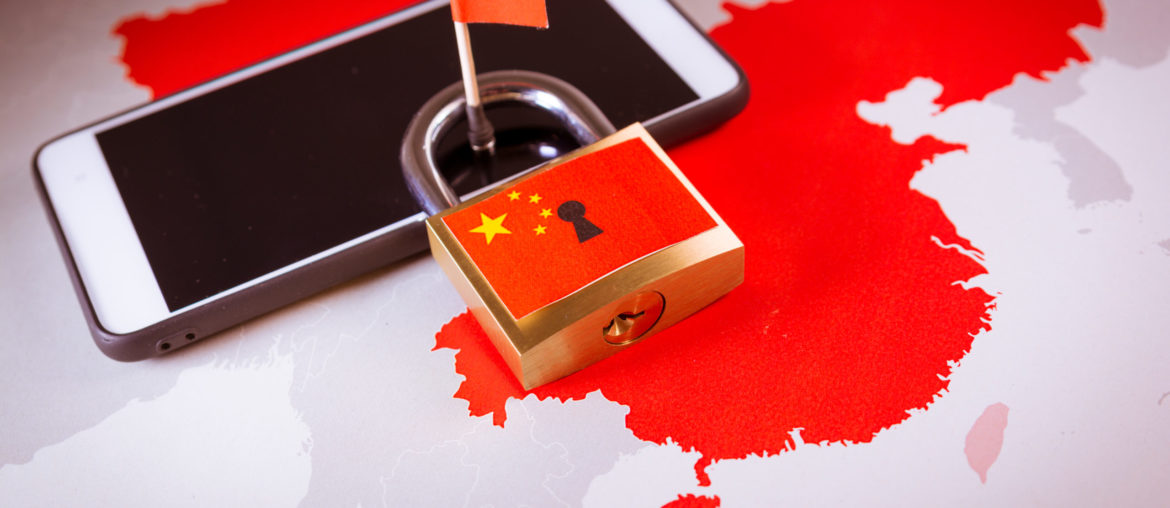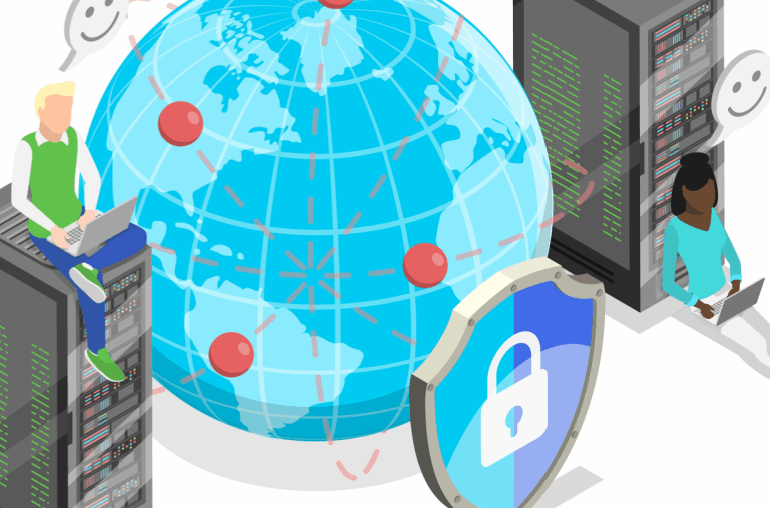China poses a problem for privacy and human rights advocates around the world. There are a number of ways that they control the flow of data through their country, for citizens and non-citizens alike. This level of control is necessary to maintain the type of power their government wields. And little is more effective than the Great Firewall of China.
Officially dubbed the “Golden Shield Project,” the Great Firewall is a collection of online filtering efforts. Since the Chinese government owns all of the ISPs in the country, it can impose strict censorship on Internet activity for anyone inside its borders. This comes in a variety of forms.

Types of Great Firewall Censorship
IP Blocking
The easiest and most common way that the Chinese government censors online content is through IP blocking. This is a procedure where anyone based out of China cannot access websites that have certain IP addresses. Since most online sites have static IPs, meaning that they don’t change, they are effectively blocked unless they undergo the process of changing domain providers on a regular basis.
DNS Cache Poisoning
However, it doesn’t end there. They also engage in a process called DNS cache poisoning. This is a type of “spoofing” where an entry in a DNS server (the computer that connects website addresses to the IP addresses where they are hosted) is changed to send somebody elsewhere. So, for example, let’s say you go to a website called “bannedinchina.com.” The Chinese government, which controls the local DNS servers, might have changed the entry for that. Now it goes to a website espousing the benefits of good citizenship and the necessity to follow the rules. That “good citizen” website might track where you are so you get a visit from the police later.
DNS cache poisoning is so effective that it once briefly expanded the Great Firewall. DNS servers share information around the world to stay up to date. One American ISP accidentally set its servers to share with a Chinese server. They got poisoned entries that then spread all over the country and blocked Twitter, Facebook, and Youtube in the US.
Keyword Filtering
Not only does China have powerful computers that scan Internet traffic for keywords that they find subversive, but they also have an enormous police force for it. While there isn’t a lot of reliable information about the Cyberspace Administration of China, some reports suggest that it employs over 2 million people. Many of them are off official payrolls.
This massive human effort is a crucial part of how China detects, responds to, and evolves its keyword filtering. Not only do these people have to identify and track those searching for prohibited information, but they also look for new terms to ban. And determine how to respond. Responses are reportedly inconsistent, resulting in everything from a stern talking to a five-year prison sentence.

What About VPNs?
We genuinely believe that virtual private networks are necessary to maintain Internet freedom. But when it comes to China, things get really tricky.
The Chinese government frequently prevents users from accessing VPNs inside their borders. It can be difficult to find one that will actually work, and even then people can get in trouble for connecting to it. While not all VPNs are “illegal,” per se, trying to circumvent the Great Firewall is. The legal VPNs must provide a backdoor for the government.
Visitors to China are less likely to be prevented from using a VPN, but that’s not always the case. Police officials have demanded that visitors remove VPN apps from phones and even installed spyware in some cases.

What’s the Solution to the Great Firewall?
We wish we could answer that, but ultimately it’s a lot more complicated than a simple blog can explain. The Great Firewall of China is a threat to human rights, both as a censorship tool and a way of hiding other abuses. However, there is very little that can be done about it, especially for citizens.
If you’re willing to risk attention from Chinese authorities, you may consider using a VPN while there. Sharing reports of abuses so that they get more international attention can also help those in China by putting pressure on other nations to act. In the end, the Great Firewall remains a digital monument to power abuse.
Download PrivadoVPN
Protect your privacy with a world-class VPN. Sign up for premium access to PrivadoVPN and get unlimited monthly data, access to 300+ servers from around the world, and up to 10 simultaneous connections. Get a top-rated VPN that can secure your privacy at home, at work, or on the go.
Sign up for PrivadoVPN today!




